Mid-Atlantic / Baltimore Region
Stakeholder Advisory Committee Kristin Baja is Urban Sustainability Directors Network (USDN) first Climate Resilience Officer, responsible for helping cities identify strategic ways to advance climate resilience planning and implementation and building their capacity to take action. The majority of her time is spent supporting cities and facilitating deeper relationships between local governments and other stakeholders in the Mid-Atlantic region. Prior to USDN, she served as the Climate and Resilience Planner with the City of Baltimore’s Office of Sustainability where she led the city’s climate adaptation and equity work. She holds a Masters of Urban Planning and a Masters of Science from the University of Michigan. In 2016, she was recognized by the Obama Administration as a Champion of Change for her work on climate and equity.
Kristin Baja is Urban Sustainability Directors Network (USDN) first Climate Resilience Officer, responsible for helping cities identify strategic ways to advance climate resilience planning and implementation and building their capacity to take action. The majority of her time is spent supporting cities and facilitating deeper relationships between local governments and other stakeholders in the Mid-Atlantic region. Prior to USDN, she served as the Climate and Resilience Planner with the City of Baltimore’s Office of Sustainability where she led the city’s climate adaptation and equity work. She holds a Masters of Urban Planning and a Masters of Science from the University of Michigan. In 2016, she was recognized by the Obama Administration as a Champion of Change for her work on climate and equity.
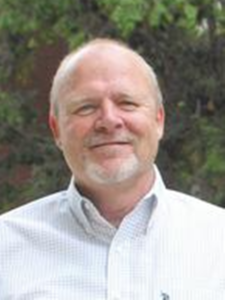 Jim Caldwell is Director of the Howard County, Maryland, Office of Sustainability. Jim is a leader in water quality protection, forest and wildlife conservation, and sustainable development. Previously he was the Stormwater Manager for Howard County overseeing the development of a utility funding mechanism and policy associated with MS4 compliance and community education associated with stormwater impacts. He served for over a decade as Director of the Department of Environmental Protection in Montgomery County, Maryland where he managed a department of 75 engineers, planners and scientists charged with natural resource protection, energy management and environmental education. Jim has contributed to Howard County’s environmental protection efforts as a member of the county’s Environmental Sustainability Board, and as director of Howard County’s Green Business Council. In addition, he is a member of the Science Advisory Council of the Maryland Science Center and a member of the Maryland Water Monitoring Council. Jim holds a BS in Wildlife Biology a MS in Environmental Management.
Jim Caldwell is Director of the Howard County, Maryland, Office of Sustainability. Jim is a leader in water quality protection, forest and wildlife conservation, and sustainable development. Previously he was the Stormwater Manager for Howard County overseeing the development of a utility funding mechanism and policy associated with MS4 compliance and community education associated with stormwater impacts. He served for over a decade as Director of the Department of Environmental Protection in Montgomery County, Maryland where he managed a department of 75 engineers, planners and scientists charged with natural resource protection, energy management and environmental education. Jim has contributed to Howard County’s environmental protection efforts as a member of the county’s Environmental Sustainability Board, and as director of Howard County’s Green Business Council. In addition, he is a member of the Science Advisory Council of the Maryland Science Center and a member of the Maryland Water Monitoring Council. Jim holds a BS in Wildlife Biology a MS in Environmental Management.
 Jim George, PhD., is Manager of the Water Quality Restoration & Accountability Program at Maryland Department of Environment. This program is housed in the Science Services Administration of MDE. It plays policy and planning roles in the implementation of Total Maximum Daily Loads (TMDL) with a strong focus on the Chesapeake Bay TMDLs for nutrients and sediments. The WQRA Program led the development of Maryland’s Watershed Implementation Plan (WIP) for the Chesapeake Bay TMDL. It is responsible for consolidating and reporting all implementation activities that are inputs to the annual Chesapeake Bay progress evaluations conducted by the EPA Chesapeake Bay Program. The WQPR Program houses the State’s Clean Water Act Section 319 Nonpoint Source Program, which manages a modest grant that supports non-regulatory local nonpoint source management. The grant also funds a water quality monitoring unit that evaluates restoration projects on a demonstration basis. The WQPR Program also manages the Chesapeake Bay Regulatory and Accountability Program (CBRAP) grant that funds State and local functions associated with Bay restoration. In addition to his work with the Department of Environment, Dr. George teaches a course in Water Resources Management. The course is part of the Johns Hopkins University Engineering for Professionals Program. Jim holds a PhD in Systems Analysis and Economics from The Johns Hopkins University, Department of Geography and Environmental Engineering.
Jim George, PhD., is Manager of the Water Quality Restoration & Accountability Program at Maryland Department of Environment. This program is housed in the Science Services Administration of MDE. It plays policy and planning roles in the implementation of Total Maximum Daily Loads (TMDL) with a strong focus on the Chesapeake Bay TMDLs for nutrients and sediments. The WQRA Program led the development of Maryland’s Watershed Implementation Plan (WIP) for the Chesapeake Bay TMDL. It is responsible for consolidating and reporting all implementation activities that are inputs to the annual Chesapeake Bay progress evaluations conducted by the EPA Chesapeake Bay Program. The WQPR Program houses the State’s Clean Water Act Section 319 Nonpoint Source Program, which manages a modest grant that supports non-regulatory local nonpoint source management. The grant also funds a water quality monitoring unit that evaluates restoration projects on a demonstration basis. The WQPR Program also manages the Chesapeake Bay Regulatory and Accountability Program (CBRAP) grant that funds State and local functions associated with Bay restoration. In addition to his work with the Department of Environment, Dr. George teaches a course in Water Resources Management. The course is part of the Johns Hopkins University Engineering for Professionals Program. Jim holds a PhD in Systems Analysis and Economics from The Johns Hopkins University, Department of Geography and Environmental Engineering.
 Kim Grove is a professional engineer, whose 20 years of experience has spanned the spectrum of civil engineering including stormwater management, land development design, environmental site assessment and remediation, geotechnical engineering and forensic analysis, construction management, and materials testing. A graduate of the Florida Institute of Technology, Ms. Grove spent most of her career as a private engineering consultant until she joined the Baltimore City Department of Public Works in December 2010. Ms. Grove now serves as the Chief for the Office of Compliance and Laboratories, a new office which is committed to enhancing environmental regulatory compliance for the Department through collaboration, management program improvements, and regulatory enforcement. Ms. Grove is an active member of the American Society of Civil Engineers, American Public Works Association, and the Water Environment Federation. In 2015, Ms. Grove won the CWEA Golden Rain Drop Award from the Chesapeake Water Environment Association (CWEA) Stormwater Committee to acknowledge extraordinary personal service to the Association while working to promote stormwater management understanding, operation & maintenance, training and continuing education.
Kim Grove is a professional engineer, whose 20 years of experience has spanned the spectrum of civil engineering including stormwater management, land development design, environmental site assessment and remediation, geotechnical engineering and forensic analysis, construction management, and materials testing. A graduate of the Florida Institute of Technology, Ms. Grove spent most of her career as a private engineering consultant until she joined the Baltimore City Department of Public Works in December 2010. Ms. Grove now serves as the Chief for the Office of Compliance and Laboratories, a new office which is committed to enhancing environmental regulatory compliance for the Department through collaboration, management program improvements, and regulatory enforcement. Ms. Grove is an active member of the American Society of Civil Engineers, American Public Works Association, and the Water Environment Federation. In 2015, Ms. Grove won the CWEA Golden Rain Drop Award from the Chesapeake Water Environment Association (CWEA) Stormwater Committee to acknowledge extraordinary personal service to the Association while working to promote stormwater management understanding, operation & maintenance, training and continuing education.
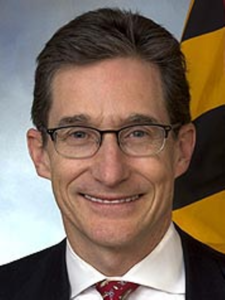 Benjamin H. Grumbles is Secretary of Maryland Department of the Environment. He was nominated by Governor Larry Hogan in January 2015 and confirmed by the Maryland Senate in March 2015. He was formerly President of the U.S. Water Alliance, an educational non-profit based in Washington, DC committed to uniting people and policy for “one water”. From 2009-2010, Ben led Arizona’s Department of Environmental Quality working on air quality and climate change, energy policy and waste management, water efficiency, and wastewater recycling. Regional priorities included protecting the Grand Canyon, Colorado River, and Arizona-Mexico border environment. Mr. Grumbles served as Assistant Administrator for Water at US EPA from 2003 through 2008. He launched EPA’s water efficiency labeling program, WaterSense, and initiatives on green infrastructure, water and climate change, and pharmaceuticals. He carried out and defended the nation’s clean water, drinking water, ocean, coastal, and wetlands laws and worked on large ecosystem collaborations from coast to coast. He also served as Acting Associate Administrator of EPA’s Office of Congressional and Intergovernmental Affairs in 2004.
Benjamin H. Grumbles is Secretary of Maryland Department of the Environment. He was nominated by Governor Larry Hogan in January 2015 and confirmed by the Maryland Senate in March 2015. He was formerly President of the U.S. Water Alliance, an educational non-profit based in Washington, DC committed to uniting people and policy for “one water”. From 2009-2010, Ben led Arizona’s Department of Environmental Quality working on air quality and climate change, energy policy and waste management, water efficiency, and wastewater recycling. Regional priorities included protecting the Grand Canyon, Colorado River, and Arizona-Mexico border environment. Mr. Grumbles served as Assistant Administrator for Water at US EPA from 2003 through 2008. He launched EPA’s water efficiency labeling program, WaterSense, and initiatives on green infrastructure, water and climate change, and pharmaceuticals. He carried out and defended the nation’s clean water, drinking water, ocean, coastal, and wetlands laws and worked on large ecosystem collaborations from coast to coast. He also served as Acting Associate Administrator of EPA’s Office of Congressional and Intergovernmental Affairs in 2004.
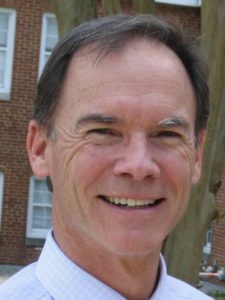 Thomas Kiefer is the Chief of the Bureau of Utilities, Department of Public Works, Baltimore County, MD. He is also Operations Manager for county’s sanitary sewer system and Engineering and Regulation operations. For the sanitary sewer system, he oversees inspection and cleaning operations, gravity and force main pipeline condition assessment programs, implementation of the fats, oil, and grease program, and rehabilitation work. For the Engineering and Regulation operations, he oversees the County’s industrial pre-treatment program and analytical testing laboratory. He also oversees operation and maintenance of the piped portion of the storm drainage system and coordination with Baltimore City for water system repairs, maintenance and constituent concerns. Tom is a contributor to Virginia Tech’s WATERiD research project and national sewer database.
Thomas Kiefer is the Chief of the Bureau of Utilities, Department of Public Works, Baltimore County, MD. He is also Operations Manager for county’s sanitary sewer system and Engineering and Regulation operations. For the sanitary sewer system, he oversees inspection and cleaning operations, gravity and force main pipeline condition assessment programs, implementation of the fats, oil, and grease program, and rehabilitation work. For the Engineering and Regulation operations, he oversees the County’s industrial pre-treatment program and analytical testing laboratory. He also oversees operation and maintenance of the piped portion of the storm drainage system and coordination with Baltimore City for water system repairs, maintenance and constituent concerns. Tom is a contributor to Virginia Tech’s WATERiD research project and national sewer database.
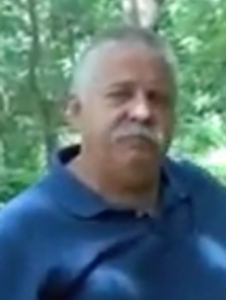 John McCoy is the Watershed Manager for the Columbia Association in Columbia, MD. Previously he served for over a decade at Maryland Department of Natural Resources including serving as the Director of the Ecosystem Restoration Center from 2005 to 2010, working on watershed related projects ranging from small reforestation projects to large comprehensive watershed restoration programs. John managed the evaluation of the State’s non-point source pollution control programs at Maryland Department of the Environment and the Department of Health and Mental Hygiene from 1985 to 1995. John holds a BS in Biology and an MS in Agronomy. As Watershed Manager for the Columbia Association, John is responsible for the implementation of the Columbia Watershed Management Plan and future watershed and water quality related endeavors. Currently John also serves on the Patuxent River Commission; as Trustee, Middle Patuxent Environmental Trust; and on the Board of Directors for the Patapsco Heritage Greenway.
John McCoy is the Watershed Manager for the Columbia Association in Columbia, MD. Previously he served for over a decade at Maryland Department of Natural Resources including serving as the Director of the Ecosystem Restoration Center from 2005 to 2010, working on watershed related projects ranging from small reforestation projects to large comprehensive watershed restoration programs. John managed the evaluation of the State’s non-point source pollution control programs at Maryland Department of the Environment and the Department of Health and Mental Hygiene from 1985 to 1995. John holds a BS in Biology and an MS in Agronomy. As Watershed Manager for the Columbia Association, John is responsible for the implementation of the Columbia Watershed Management Plan and future watershed and water quality related endeavors. Currently John also serves on the Patuxent River Commission; as Trustee, Middle Patuxent Environmental Trust; and on the Board of Directors for the Patapsco Heritage Greenway.
 Bill Stack, PE, is the Deputy Director of Programs, for the Center for Watershed Protection and has been in that position since March, 2010. Bill’s principal responsibility is the development of new and innovative projects to support the strategic plan as well as keeping the Center at the forefront of issues affecting the environment. He has expertise in managing water resource protection and restoration programs related to water supply and source water protection, urban stormwater management, agricultural non-point source control, and flood management. His wide range of experience has helped the Center in securing multiple projects in a wide array of disciplines including illicit discharge detection and elimination, stream restoration, stormwater financing, best management practice crediting and ultra-urban watershed planning. Prior to coming to work with the Center, Bill spent 30 years working for the Baltimore City Department of Public Works. One of his first projects with the City was managing the Jones Falls Urban Runoff Project which was one of 28 projects that participated in the National Urban Runoff Project. He retired from the City as Chief of the Surface Water Management Division where he oversaw the MS4 Permit, Source Water Protection and Flood Warning Programs. Bill has also been active in the professional community and among other accomplishments chaired the Patapsco Back River Tributary Team and Maryland Water Monitoring Council for several years. Bill has a Bachelor’s and Master’s degree in Biology and is also a Licensed Professional Engineer with professional training in water quality, hydrologic, hydraulic modeling and geomorphology.
Bill Stack, PE, is the Deputy Director of Programs, for the Center for Watershed Protection and has been in that position since March, 2010. Bill’s principal responsibility is the development of new and innovative projects to support the strategic plan as well as keeping the Center at the forefront of issues affecting the environment. He has expertise in managing water resource protection and restoration programs related to water supply and source water protection, urban stormwater management, agricultural non-point source control, and flood management. His wide range of experience has helped the Center in securing multiple projects in a wide array of disciplines including illicit discharge detection and elimination, stream restoration, stormwater financing, best management practice crediting and ultra-urban watershed planning. Prior to coming to work with the Center, Bill spent 30 years working for the Baltimore City Department of Public Works. One of his first projects with the City was managing the Jones Falls Urban Runoff Project which was one of 28 projects that participated in the National Urban Runoff Project. He retired from the City as Chief of the Surface Water Management Division where he oversaw the MS4 Permit, Source Water Protection and Flood Warning Programs. Bill has also been active in the professional community and among other accomplishments chaired the Patapsco Back River Tributary Team and Maryland Water Monitoring Council for several years. Bill has a Bachelor’s and Master’s degree in Biology and is also a Licensed Professional Engineer with professional training in water quality, hydrologic, hydraulic modeling and geomorphology.
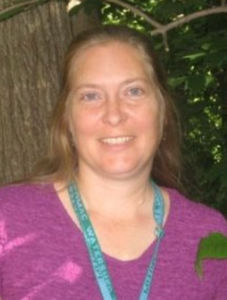 Anne Hairston-Strang, PhD, is Forest Hydrologist and Acting Associate Director of Maryland Department of Natural Resources Forest Service. She coordinates the Watershed Forestry Program and oversees statewide programs for Urban/Community Forests, Fire, Stewardship, and Utilization. Anne has worked on riparian and watershed restoration issues since joining Maryland Forest Service in 1997. Anne participates in a variety of partnerships, including Baltimore Ecosystem Study, Baltimore Urban Waters Initiative, Chesapeake Bay Program Forestry Work Group, the CBP Healthy Watersheds Goal Implementation Team, Potomac Watershed Partnership Steering Committee, Northeastern Area Association of State Foresters Forest Health Committee, DC Regional Tree Canopy Workgroup, DNR Invasive Species Matrix Team, Maryland CREP Advisory Committee, and Maryland Invasive Species Council. She is a Licensed Forester in Maryland and has been a member of the Society of American Foresters since 1987, currently serving as secretary for the Maryland/Delaware Chapter. She served on the 2007 National Research Council committee on Hydrologic Impact of Forest Management. She holds a BS in Forest Management from Virginia Tech, a MS in Forest Soils from University of Minnesota St. Paul and a PhD in Forest Hydrology from Oregon State University.
Anne Hairston-Strang, PhD, is Forest Hydrologist and Acting Associate Director of Maryland Department of Natural Resources Forest Service. She coordinates the Watershed Forestry Program and oversees statewide programs for Urban/Community Forests, Fire, Stewardship, and Utilization. Anne has worked on riparian and watershed restoration issues since joining Maryland Forest Service in 1997. Anne participates in a variety of partnerships, including Baltimore Ecosystem Study, Baltimore Urban Waters Initiative, Chesapeake Bay Program Forestry Work Group, the CBP Healthy Watersheds Goal Implementation Team, Potomac Watershed Partnership Steering Committee, Northeastern Area Association of State Foresters Forest Health Committee, DC Regional Tree Canopy Workgroup, DNR Invasive Species Matrix Team, Maryland CREP Advisory Committee, and Maryland Invasive Species Council. She is a Licensed Forester in Maryland and has been a member of the Society of American Foresters since 1987, currently serving as secretary for the Maryland/Delaware Chapter. She served on the 2007 National Research Council committee on Hydrologic Impact of Forest Management. She holds a BS in Forest Management from Virginia Tech, a MS in Forest Soils from University of Minnesota St. Paul and a PhD in Forest Hydrology from Oregon State University.
